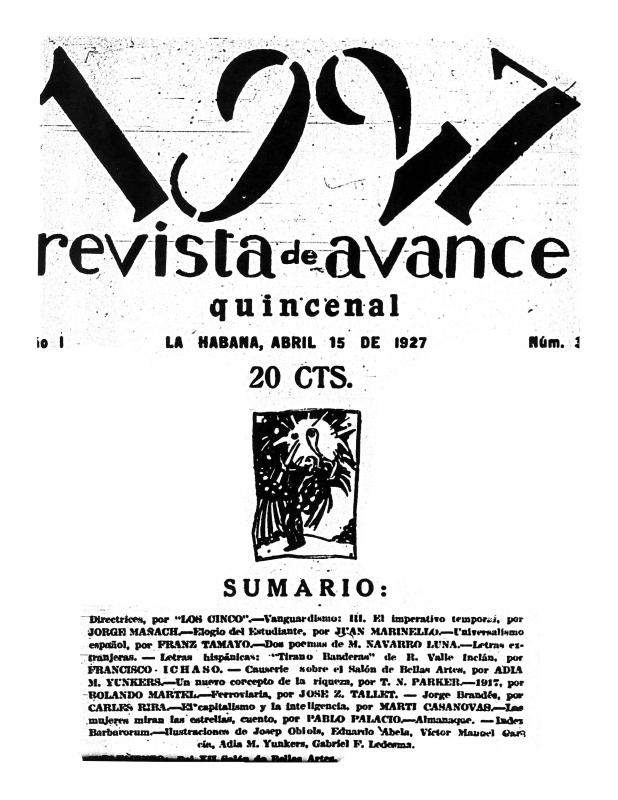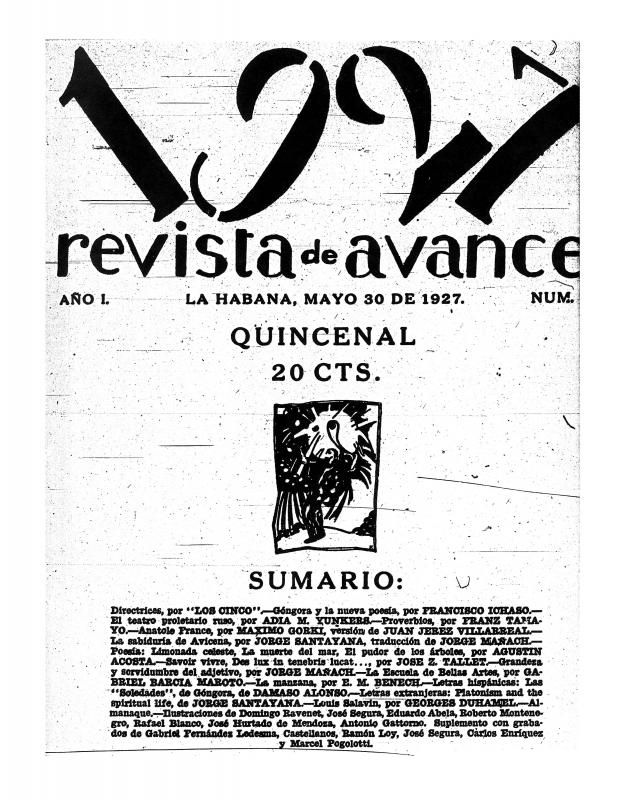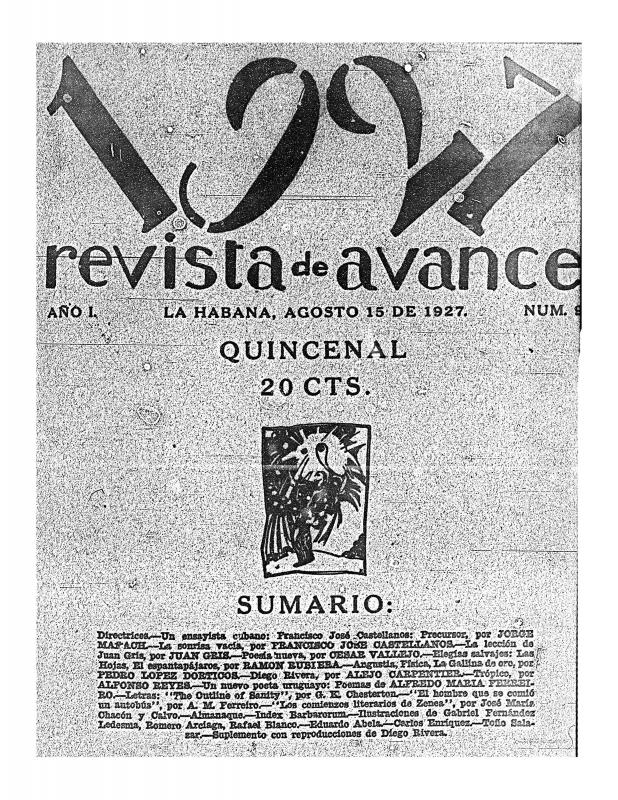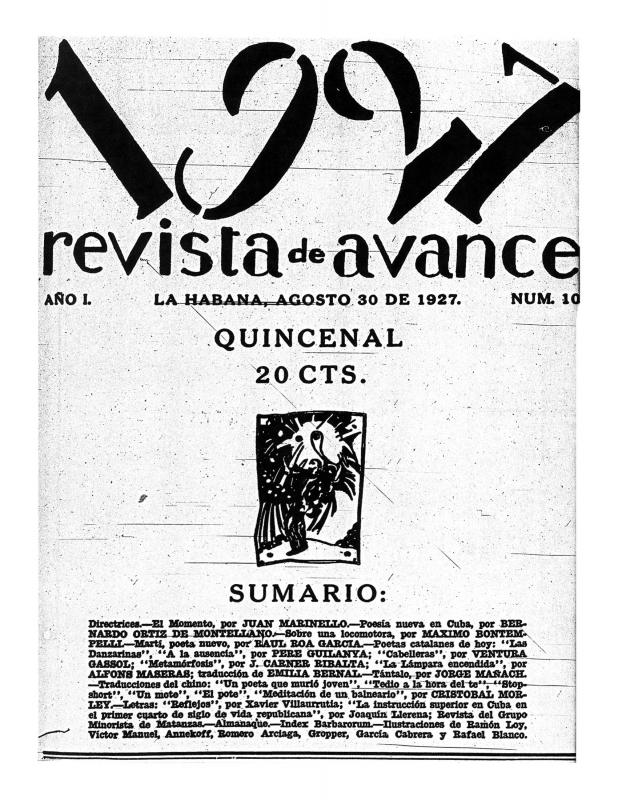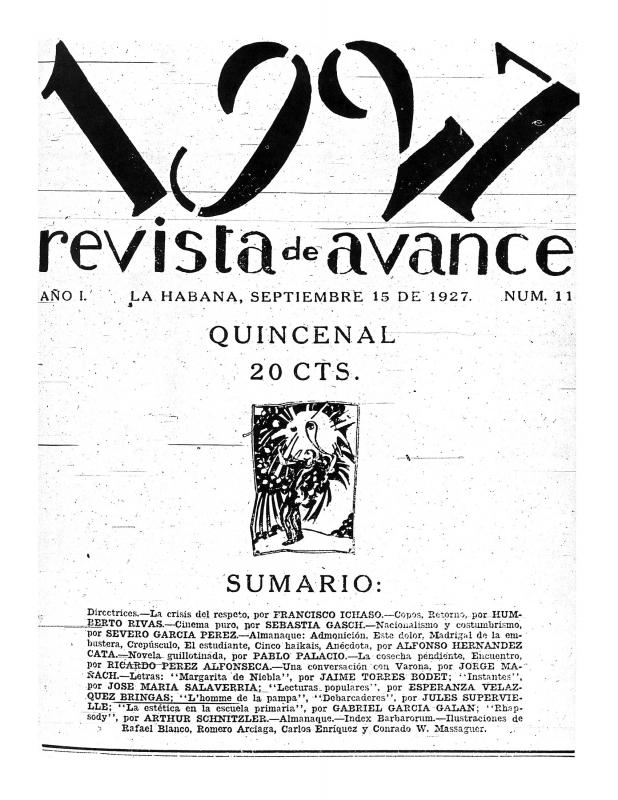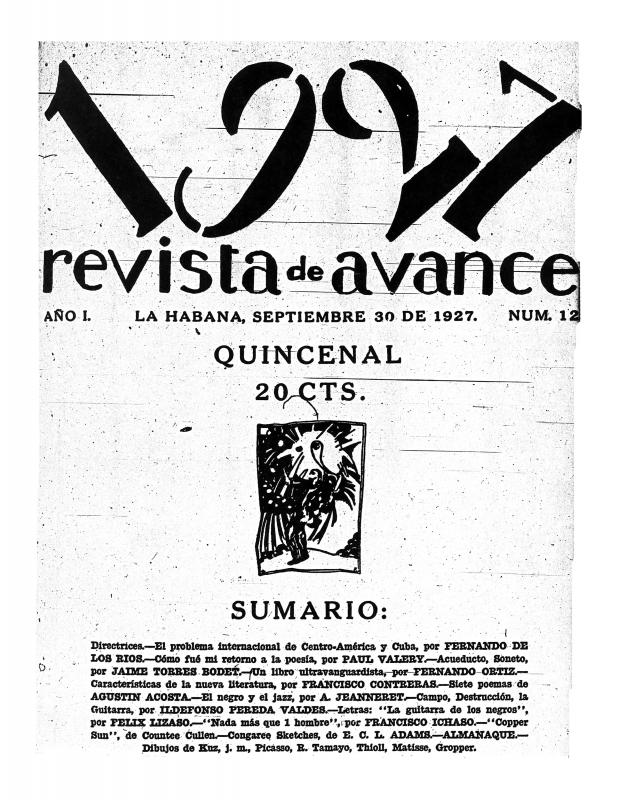The Revista de avance had a section entitled “Guidelines,” which included short informative articles or comments on matters or events related to the focus of the journal. In this section, the editors informed the reader about changes, clarification, and comments on previous articles or matters of interest. In this issue, of particular importance are two short texts that are intimately related: (1) the article on the first twenty-five years of the Cuban Republic and (2) the one that addresses the importance of the recent publication in national magazines of the Grupo Minorista’s “Declaración.” Founded in 1923 by some of the same people involved in The Protest of the Thirteen, this group could be characterized by its heterogeneity and commitment to the political problems facing the island. The group comprised writers, artists, historians, and art critics as well as intellectuals with degrees in law and political science. Many of the debates that took place within that circle arose from the political positions of its members, especially a vigorous opposition to annexation by the United States. The Protest of the Thirteen was a significant event in Cuban history, since it marked the birth of the student struggles against whatever corrupt government was in power and the dictatorships, first that of Machado and later that of Batista. Among the most distinguished public figures of the time was Rubén Martínez Villena (1899–1934), who died at a young age from tuberculosis.
Pedro Sanjuán (1886–1976), who would present a lecture in conjunction with the Exposición de Arte Nuevo, as announced, was a distinguished Spanish musician, orchestrator, and composer. He trained in Madrid with musicians of the stature of Manuel de Falla and Joaquín Turina, two of the most important Spanish composers in the twentieth century. In 1923, he arrived in Cuba, where he played a key role in the avant-garde intellectual movement as a precursor of the new musical trends and mentor of young Cuban musicians. In 1932, he returned to Spain, and two years later, he was awarded the National Music Prize there. He left Spain due to the political unrest in 1934.
[For further reading, see in the ICAA digital archive other “Directrices” published on: March 30, 1927 (doc. no. 1298727); April 15, 1927 (doc. no. 1298763); April 30, 1927 (doc. no. 1299725 May 30, 1927 (doc. no. 1299841); August 15, 1927 (doc. no. 1299913); August 30, 1927 (doc. no. 1299981); September 15, 1927 (doc. no. 1300019); and September 30, 1927 (doc. no. 1300074)].

